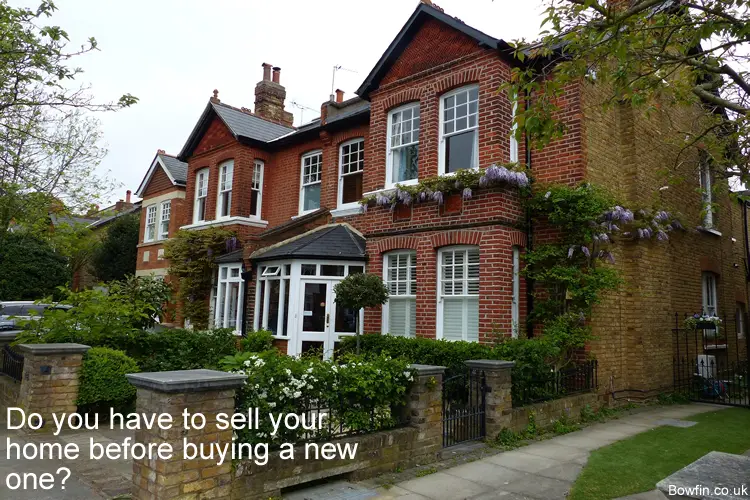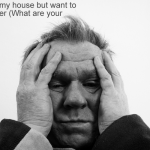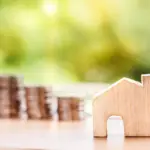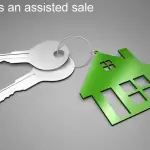
If you are asking the question ‘do you have to sell your home before buying a new one‘, this article will provide you with some useful tips and ideas. I will discuss the implications of buying a house before selling your current house and the risks involved in going down this route.
Do you have to sell your home before buying a new one? You don’t have to sell your home before buying a new one. But be aware of the tax implications of doing this. You’ll have to pay an additional 3% Stamp Duty on the new home in addition to the standard Stamp Duty rates. There are also mortgage implications of buying another house if you haven’t sold your old one.
Should you sell your house before buying a new one?
Let’s get straight to the point and answer the main question of this article, which is should you sell before you buy your new home.
The simple answer is no you don’t have to sell your home before buying a new one. There’s nothing to stop you from doing this. There’s no law in the UK that states you have to sell before buying your next house.
But there are implications of not selling before buying your next house. This leads to the next question, which is: ‘what are the risks of buying a new house before selling your home?’
This is a completely different question. The answer to this more important question depends on your attitude to risk.
Reasons why you should sell your home before buying a new one
There are many reasons why you should sell your home first. These reasons depend on your current circumstances. What is your current situation and do you have sufficient deposit.
Review your attitude to risk
Before you go ahead and buy a new house before you’ve some your home, you need to consider your attitude to risk first. If your risk profile is low and you are averse to risk, then having more than one property might not be for you.
Having said this, if you rent your house you keep when you buy a new one, the rental income will mitigate this risk.
The tenants will pay for your mortgage, assuming you have one. But be warned, becoming a landlord isn’t as much fun as it used to be. The UK government has made it much more difficult for landlords, or world-be landlords.
Getting a new mortgage
If you decide to keep your old home before you buy a new one you may need to be selective on which mortgage company you choose for the new house. Most mortgage lenders in the UK understand second or third properties.
You should convert your existing mortgage on your old home to a buy to let mortgage. If you don’t, your old mortgage company may not like it that you’ve decided to rent it out.
However, some mortgage lenders will allow this if you write for permission to do so. But you may find the lender will adjust the interest rate and they may charge an administration fee.
Of course once you buy your new house with a mortgage you now have two mortgages. You need to be able to account for void periods, which is a gap between when one tenant moves out and a new one moves in.
This adds a layer of risk. But before you go down this route, you need to check your local rental demand. If there’s good demand your risk is lower.
But if rents are low or there’s a glut of rental properties you may find it difficult to rent your old home. Whilst your old home is empty you will be having to find the money to pay two mortgages.
Getting bad tenants
If it’s your intention to become a landlord and rent your old house, there are landlord implications.
There’s always the risk of getting bad tenants in your property. This can lead to them not paying their rent and then you’ll find yourself needing to evict these non-paying tenants, whilst having to cover two mortgages.
In addition to having to cover two mortgages, this situation usually leads to the tenants trashing your house. This will cost you and you’re unlikely to get the money from these bad tenants once you’ve evicted them.
What are the tax implications of not selling your home before buying a new one
There are tax implications of not selling your old house before you buy a new one.
These implications include an extra 3% Stamp Duty paid on your new home. Potential Capital Gains Tax when you eventually sell your old home. Plus Income Tax implications on the rents net of expenses if you become a landlord.
But instead of going into detail here, here’s an article to explain this further: What are the tax implications of buying a house before selling?
Reasons why you don’t need to sell your home before buying a new one
There are a number of reason why it might be a good idea to keep your old house. For one, you may be pushed into this situation due to circumstances beyond your control.
For example, it may be that you can’t sell your old home for more than what you owe. If the valuation an estate agent puts on your home is under what you’d hoped for, it might mean that you are in negative equity. This situation usually creates a barrier to selling for most.
Second income stream
Retaining your old home and renting it out will give you a second income stream. But beware the new tax system that’s been brought in.
What’s crazy about the current UK government is that they don’t recognise a landlord-tenant business as a business. Being a landlord is the only business in the UK which is not allowed to deduct interest paid on loans.
Prior to the new ‘Section 24’ legislation any interest on loans taken out to purchase a tenanted property would be offset against the rental income. but since this new legislation, this is no longer the case. However, Property 118 have a solution for this problem for some landlords. They also provide sound advice to property landlords too, you might like to download their free ultimate guide to landlord tax planning.
Future pension asset
Keeping your old house will provide you with a future asset. This can be added to your ‘pension‘. When I say added to your pension, I don’t mean you transfer it to your actual pension, but instead it can be used as an asset to support you when you retire.
Your old home will provide you with a future monthly income for when you retire and the income from your job ceases.
Puts you in a stronger buying position
By not selling your old home you are the end of the property chain. Sellers prefer to sell you people who are either cash buyers or buyers who are not reliant on selling their home.
If you are not selling your old house you are deemed to be a more attractive buyer. This in turn can give you more leverage when it comes to negotiating the buying price of your new home.
How do you buy a house when you already own one?
To buy a new house whilst retaining your old one you are better off approaching a mortgage broker. A broker will not only match you with the best mortgage to buy your new home, but they will also advise you on the best buy to let mortgage to switch your old home to.
You will need to have sufficient deposit to buy your new home. If you don’t, it’s possible to raise the funds from your old home when you convert your existing mortgage to a buy to let mortgage.
The way buy to let mortgages work is you can borrow up to a certain multiple of the rents the property is expected to achieve. But be warned as noted above, the interest on your mortgage will not be tax deductible against the rental income.
I hope you’ve enjoyed this article on do you have to sell your home before buying a new one
If you’ve enjoyed this article on do you have to sell your home before buying a new one please share it on your favourite social media site.
Also, if you have any questions, please feel free to comment below too. Alternatively, if you need more help, please feel free to contact us on our contact us page here. Or join the discussion and ask your question in the property forum.




